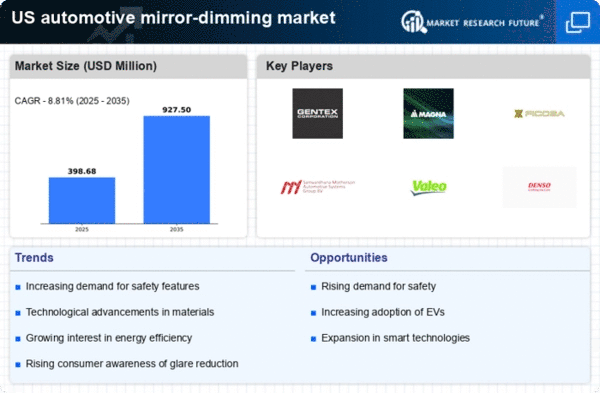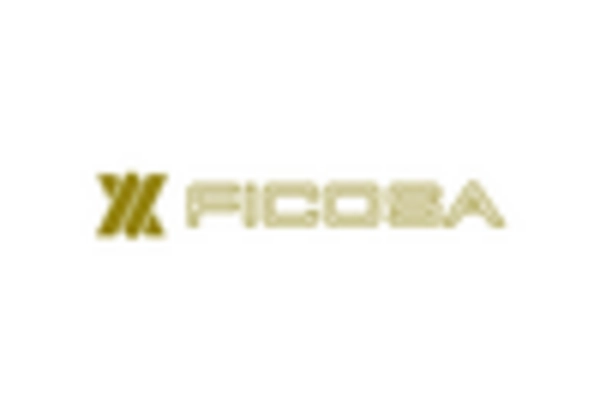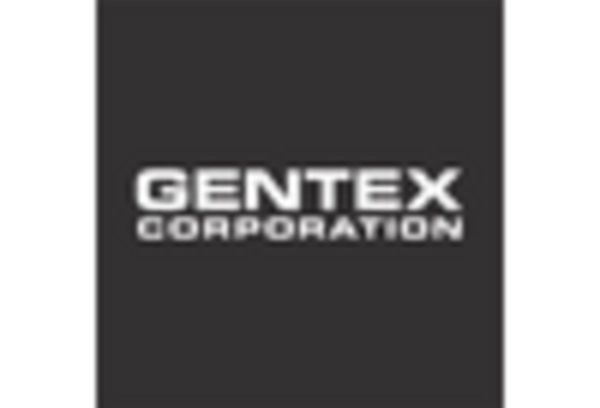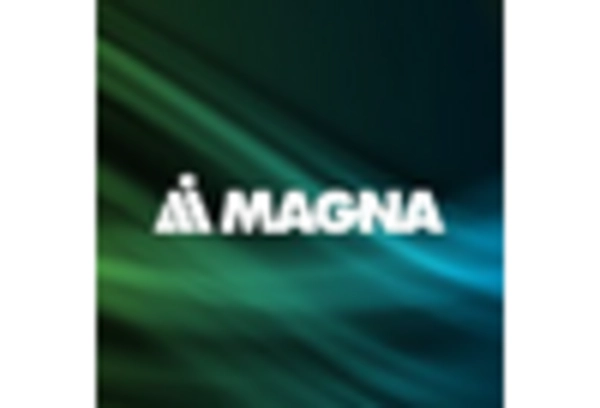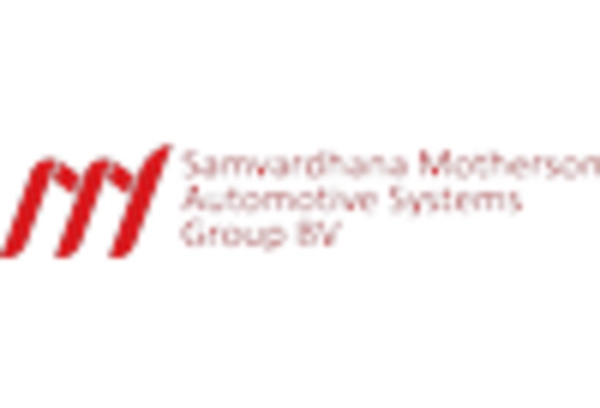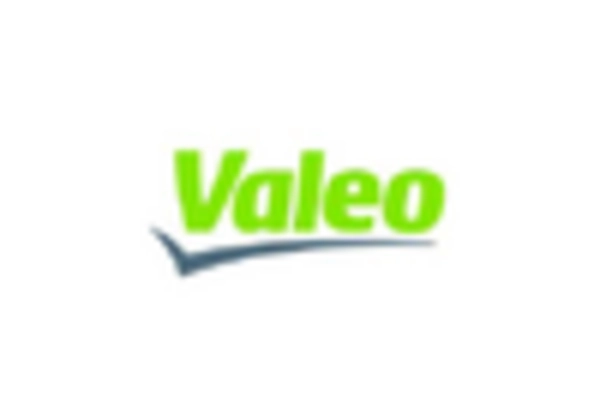Rising Safety Standards
The automotive mirror-dimming market is experiencing growth. This growth is due to increasing safety standards mandated by regulatory bodies. In the US, the National Highway Traffic Safety Administration (NHTSA) has been advocating for enhanced visibility features in vehicles. This push for improved safety measures has led to a greater adoption of advanced technologies, including mirror-dimming systems. These systems help reduce glare from headlights of vehicles behind, thereby enhancing driver safety. As a result, manufacturers are investing in the development of innovative mirror-dimming solutions to comply with these regulations. The automotive mirror-dimming market is expected to grow at a CAGR of approximately 8% over the next five years, driven by these stringent safety requirements.
Technological Integration in Vehicles
The integration of advanced technologies in vehicles is a key driver for the automotive mirror-dimming market. With the rise of smart vehicles and the Internet of Things (IoT), manufacturers are increasingly incorporating mirror-dimming features that can be controlled automatically based on ambient light conditions. This technological evolution not only enhances user experience but also aligns with consumer preferences for convenience and safety. The automotive mirror-dimming market is expected to witness a surge in demand as more vehicles are equipped with these intelligent systems. In 2025, it is estimated that around 30% of new vehicles sold in the US will feature advanced mirror-dimming technologies, reflecting a significant shift towards smarter automotive solutions.
Increased Vehicle Production and Sales
The automotive mirror-dimming market is poised for growth due to the overall increase in vehicle production and sales in the US. As the automotive industry rebounds and consumer confidence rises, manufacturers are ramping up production to meet the growing demand for new vehicles. This surge in vehicle sales is directly correlated with the adoption of advanced features, including mirror-dimming systems. It is estimated that the US automotive market will see a production increase of approximately 5% in the coming years, which will likely drive the demand for mirror-dimming technologies. Consequently, the automotive mirror-dimming market is expected to expand as more vehicles are equipped with these innovative features.
Consumer Preference for Luxury Features
The automotive mirror-dimming market is significantly influenced by consumer preferences for luxury and comfort features in vehicles. As consumers in the US increasingly seek premium vehicles, manufacturers are responding by incorporating advanced mirror-dimming technologies that enhance the driving experience. These features not only provide aesthetic appeal but also improve functionality by reducing glare and enhancing visibility. The demand for luxury vehicles is projected to grow, with a notable increase in sales of high-end models that include mirror-dimming systems. This trend is expected to contribute to a market growth rate of approximately 7% annually, as consumers prioritize comfort and safety in their vehicle choices.
Environmental Considerations and Energy Efficiency
The automotive mirror-dimming market is also being driven by growing environmental concerns and the push for energy-efficient solutions. As the automotive industry shifts towards sustainability, manufacturers are exploring mirror-dimming technologies that minimize energy consumption. Electrochromatic mirrors, which adjust their tint based on light exposure, are gaining traction as they reduce the need for additional lighting systems, thereby enhancing energy efficiency. This aligns with the broader trend of reducing the carbon footprint of vehicles. The automotive mirror-dimming market is likely to benefit from this shift, with an anticipated increase in demand for eco-friendly technologies that contribute to overall vehicle efficiency.


